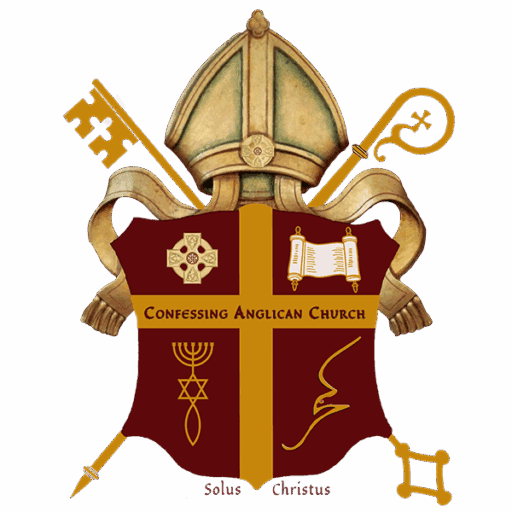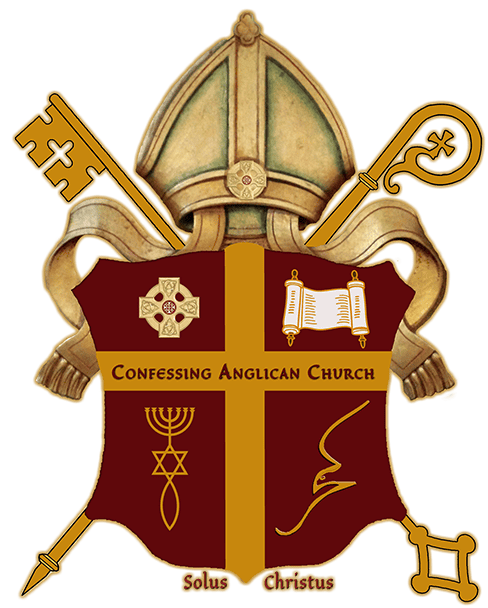If SERVING is beneath you, LEADERSHIP is beyond you.
Jesus spoke of Himself as having come, not to be served, but to serve (Mark 10:45). We strive to follow in his footsteps, and so in the Church, leadership roles are not about power and control, but about working for the benefit of others, supporting and equipping them for service to God and others.
Apostolic Succession
As the first generation of the Church began to pass away, it became critical to ensure that the testimony and teachings of the Apostles were preserved faithfully, fully, and without distortion. The early Church recognized that the integrity of Christian doctrine and the unity of the Body depended on a clear and continuous transmission of apostolic teachings and authority. This sacred responsibility was entrusted to the earliest Bishops, many of whom were direct disciples of the Twelve Apostles themselves. These men were spiritual fathers and guardians of the faith, charged with maintaining the truth of the Gospel and shepherding the growing Christian communities.
Following the example set by the Apostles, these Bishops continued the practice of laying hands upon men who had demonstrated spiritual maturity, doctrinal soundness, and pastoral faithfulness. This act of ordination was not simply symbolic—it was a sacramental recognition of divine calling and ecclesial authority, affirming the candidate’s role in teaching, governing, and preserving the Church’s unity in truth. Through this process, the Church established a visible and unbroken line of succession, ensuring that the leadership of the Church remained rooted in apostolic foundations.
This is the model that all historic and orthodox churches have followed for two millennia, including the Eastern Orthodox, Roman Catholic, and many Anglican bodies. The Confessing Anglican Church (CAC) stands strong in this stream of Apostolic Succession, affirming that our Bishops are not self-appointed, but duly consecrated within the historic line that traces back to the Apostles.
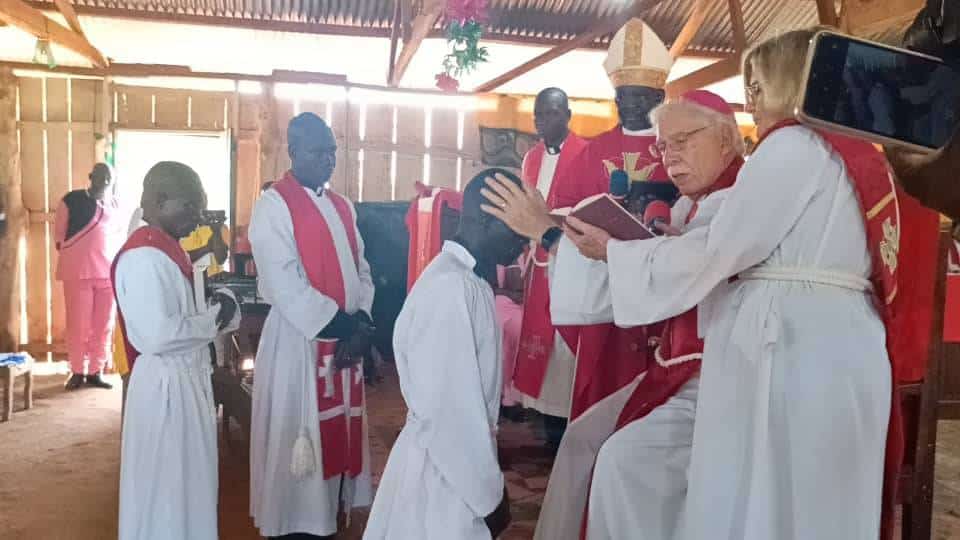
Historic Ministry Roles
As the Church began to grow, the Apostles recognized the need to delegate areas of ministry to trusted individuals who could serve the spiritual and practical needs of the expanding Christian communities. They appointed some as Deacons (Acts 6:2–5), who were tasked with caring for the poor and managing the daily distribution of resources; some as Elders (Acts 14:23), who provided pastoral leadership and teaching; and some as Overseers (Acts 20:28), who exercised spiritual oversight and guarded the flock from false doctrine.
From these foundational offices, the Church quickly developed the three-fold ministry of Deacons, Presbyters (Elders), and Bishops (Overseers), which became the normative pattern for ecclesial leadership. This structure ensured that ministry was both collaborative and hierarchical, with each order serving distinct but complementary functions.
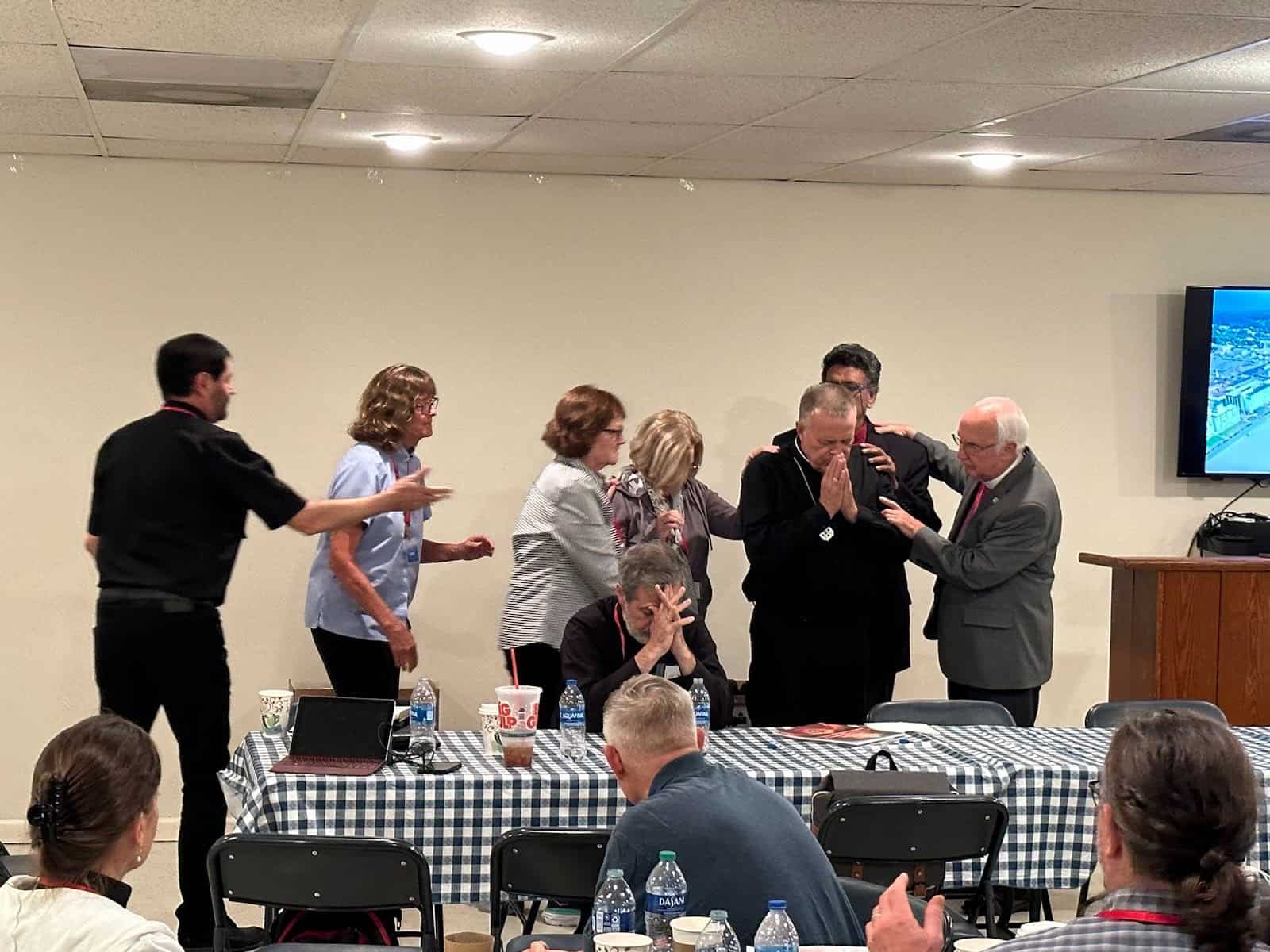
Ministry and Gender
The CAC affirms ministry roles for both men, and women as equally valid, valuable, and necessary in God’s Kingdom. We affirm the scriptures and tradition that tell us God created men and women to have differing, but complimentary roles in the Church. While there are a number of ministry roles which are open to women, the Church recognizes a divinely appointed order in which oversight roles are held only
by men, this includes the roles of Priest and Bishop.
Women have held diaconal roles both in scripture and historically, and so we do ordain women to the Order
of Deacons.
A ROLE FOR EVERY BELIEVER
EQUIPPED FOR MINISTRY
Every believer is called to ministry—not just bishops, priests, or deacons. Scripture affirms that each person has been given gifts and a calling, uniquely crafted by God for His purposes.
Men and women, young and old alike, are empowered by the Holy Spirit to serve as faithful witnesses of Christ in their homes, workplaces, and communities. This calling is not reserved for the few but extended to all who belong to Jesus.
We are called to the obedience that flows from faith, living lives shaped by grace and truth. As Paul writes, “We are His workmanship, created in Christ Jesus for good works, which God prepared beforehand, that we should walk in them” (Ephesians 2:10).
Ministry is not a title—it’s a life of service, shaped by the Spirit, grounded in the Word, and carried out in love. The Church flourishes when every member embraces their role in God’s mission.


Three Historic Ministry Roles
These traditional roles express the serving and equipping ministry of Jesus Himself, with each one reflecting different aspects of it.
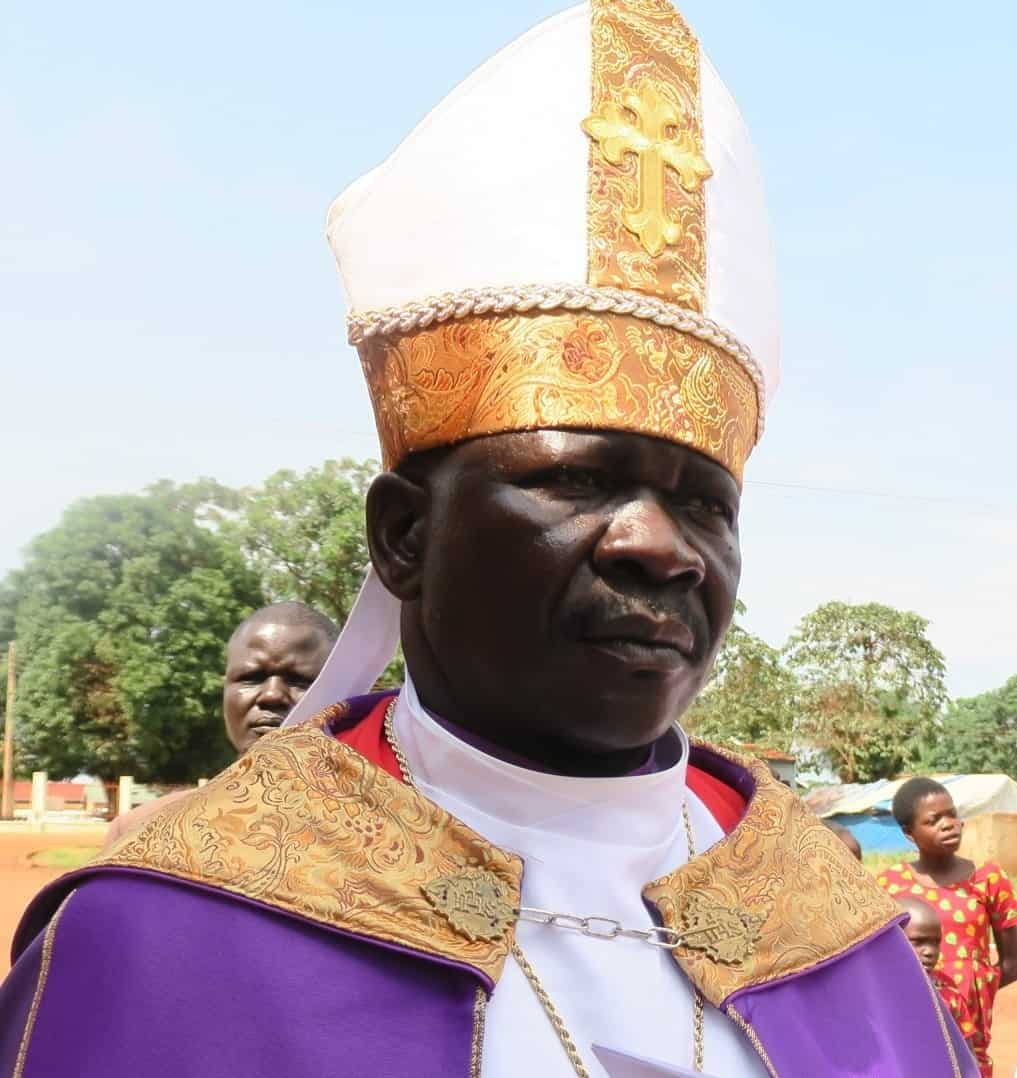
BISHOPS
In addition to His ministry of servanthood, Jesus united in Himself the three great biblical offices of Prophet, King and Priest (e.g. Deuteronomy 18:15, 1 Tim 6:15, Hebrews 4:14). These are reflected in the ministry of the Bishop.
The principal duty of the Bishop is prophetic – to proclaim ‘Thus says the Lord …’ – to preach the Gospel and call men and women to repentance and faith. His kingly role is that of shepherd: after the pattern of the Good Shepherd, who laid down His life for His sheep. He is called to lead, love and care for those committed to his charge. Following the example of Christ the High Priest, the Bishop is to intercede for his people and preside at the Church’s offering of spiritual sacrifices acceptable to God (1 Peter 2:5).
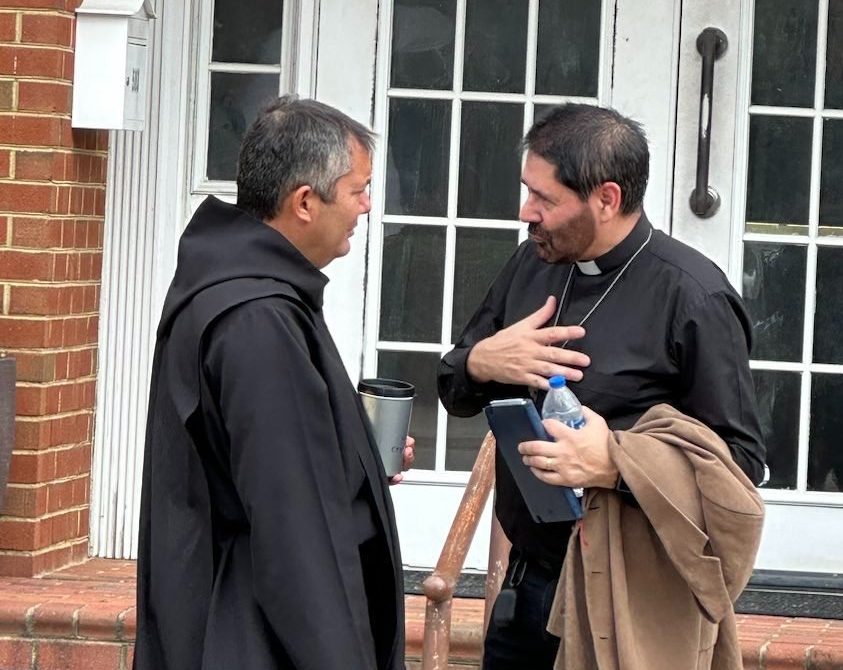
PRESBYTERS
Priests/Presbyters are the principal ministers of Word and Sacrament in the local congregations to which the Bishop appoints them.
They share the Bishop’s fourfold ministry. They are to be shepherds, messengers, watchmen and servants of the Lord, calling their hearers to repentance and declaring in Christ’s name the absolution and forgiveness of their sins. They are to baptize those who come to faith and feed everyone under their care from the Word and the Lord’s Table.
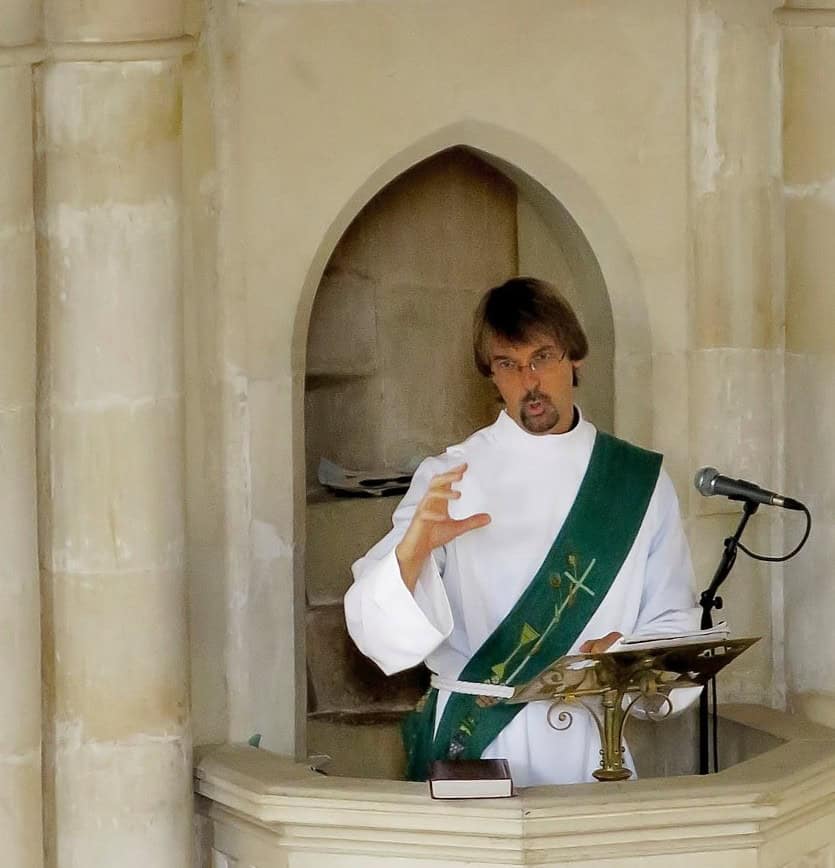
DEACONS
Deacons share in the humility and service of Christ for the strengthening of His Body, the Church.
They assist in public worship at the altar, and read the Gospel in worship services; proclaiming it also through lives of service to the weak, ill, incarcerated and infirm. They instruct both young and old in the Catechism. Deacons are also called to interpret the needs of the world to the Church, encouraging the household of God to care for the stranger, embrace the poor and remember those in need of the touch of the Messiah in their lives.
